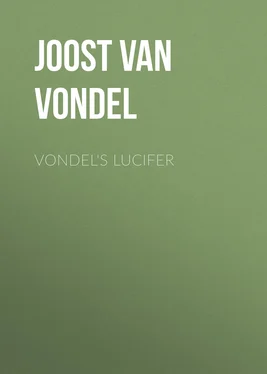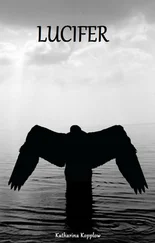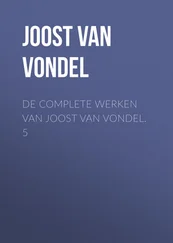Joost Vondel - Vondel's Lucifer
Здесь есть возможность читать онлайн «Joost Vondel - Vondel's Lucifer» — ознакомительный отрывок электронной книги совершенно бесплатно, а после прочтения отрывка купить полную версию. В некоторых случаях можно слушать аудио, скачать через торрент в формате fb2 и присутствует краткое содержание. Издательство: Иностранный паблик, Жанр: foreign_dramaturgy, Драматургия, foreign_antique, foreign_prose, на английском языке. Описание произведения, (предисловие) а так же отзывы посетителей доступны на портале библиотеки ЛибКат.
- Название:Vondel's Lucifer
- Автор:
- Издательство:Иностранный паблик
- Жанр:
- Год:неизвестен
- ISBN:нет данных
- Рейтинг книги:5 / 5. Голосов: 1
-
Избранное:Добавить в избранное
- Отзывы:
-
Ваша оценка:
- 100
- 1
- 2
- 3
- 4
- 5
Vondel's Lucifer: краткое содержание, описание и аннотация
Предлагаем к чтению аннотацию, описание, краткое содержание или предисловие (зависит от того, что написал сам автор книги «Vondel's Lucifer»). Если вы не нашли необходимую информацию о книге — напишите в комментариях, мы постараемся отыскать её.
Vondel's Lucifer — читать онлайн ознакомительный отрывок
Ниже представлен текст книги, разбитый по страницам. Система сохранения места последней прочитанной страницы, позволяет с удобством читать онлайн бесплатно книгу «Vondel's Lucifer», без необходимости каждый раз заново искать на чём Вы остановились. Поставьте закладку, и сможете в любой момент перейти на страницу, на которой закончили чтение.
Интервал:
Закладка:
Joost van den Vondel
Vondel's Lucifer
Vondel.
Translator's Preface
It is with a feeling of diffidence that I offer to American readers this the first English version of that unknown Titan, Vondel, a poet of whom Southey's words on Bilderdÿk, another Dutch bard, might also have been spoken:
"The language of a state
Inferior in illustrious deeds to none,
But circumscribed by narrow bounds,…
Hath pent within its sphere a name wherewith
Europe should else have rung from side to side."
This translation of the "Lucifer" is the result of years of careful study, and I may therefore be pardoned for calling it a conscientious effort. My object has been to give merely a literal but sympathetic rendering. It has been my aim to preserve the old poet in all his rugged simplicity, for every syllable of this classic has been hallowed by centuries. It is sacred, and every change is but a desecration.
Sacred as is the body of such a poem, yet how much holier is its spirit—the elusive properties of its soul! But how seldom does the translation of a great classic prove other than the breaking of the chalice and the spilling of the wine! Yet if but some faint aroma of its original beauty linger around the fragment of this offering—this version of Vondel's grand drama—I lay down my pen content.
I am aware that less accuracy and a greater freedom might in many places have produced a more ornate and highly finished rendering; but this, it seems to me, would have weakened a poem—a poem whose chief merit is its remarkable virility. Every word in a translation of a classic, not in the original, is but the alloy that lessens the proportion of true gold in the coin of its worth. Felicitous paraphrasing is often only a confession of inability to translate an author into the true terms of poetical equation. Mere prettinesses are surely not to be expected in a poem so sublime and stately. I have therefore followed the text of the original very closely.
The body of the drama was written by Vondel in rimed Alexandrines. This part of the play I have rendered into blank verse—a metrical form far better suited to the English drama, and also more adapted to the genius of our language. It is obvious, too, that this admits of much greater accuracy in the translation.
I have, however, scrupulously adhered to the original metres of all the choruses—most of them very involved and intricate, some modelled after the antique—even to preserving the feminine and interior rimes; for the utility and beauty of the chorus is in its music, and the music consists in both metre and rime. I have also generally followed Vondel's capitalization and punctuation, and his spelling of the names of the characters, as Belzebub, Rafael, Apollion, etc.
With the much discussed question of Milton's indebtedness to Vondel this effort has nothing to do. I mention this merely to show that this version was not made that it might be adduced as proof of Vondel's influence on his great English contemporary. It has a much higher reason to commend it; namely, the intrinsic value of the original as a poem and as a national masterpiece. My desire has been to give Vondel; and Vondel is a sufficient justification.
At the same time, I was not displeased when I received a letter from a distinguished American scholar, stating that this translation also incidentally fills a wide gap in the Miltonic criticism, and that it thus supplies a great desideratum.
With this version of Vondel's masterpiece I have also been asked to give a sketch of the poet and his time, and an interpretation of the drama, since there is so little in English on the subject.
In writing the former, I found much of value in Mr. Gosse's charming essays on Vondel, in his "Northern Studies." I must also acknowledge my great obligations to Dr. Kalff's "Life of Vondel."
Before closing I wish to thank the poets and scholars of the Netherlands for their encouragement. Their kind reception of my effort was a gratifying surprise to me.
I must also take this opportunity to record the kindness of that eminent scholar, Dr. G. Kalff, Professor of Dutch Literature in the University of Utrecht, who, though overwhelmed with professional duties, with the most painstaking care examined every part of my translation, giving me, furthermore, the benefit of his critical observations. The brilliant article on Vondel and his "Lucifer," with which he has favored this volume, is an added reason for my gratitude.
I also thank Dr. W.H. Carpenter of Columbia University for his kind interest in my work, and for his invaluable introduction.
And, finally, to my friends, Prof. Henry Jerome Stockard, the Southern poet; Dr. Thomas Hume, Professor of English Literature in the University of North Carolina; and Dr. C. Alphonso Smith, Professor of English in the University of Louisiana, I also express my thanks for some excellent suggestions.
Introduction
It has become a matter of literary tradition, in Holland and out of it, that the choral drama of "Lucifer" is the great masterpiece of Dutch literature. The Dutch critics, however, are by no manner of means unanimous in this opinion. In point of fact, it has been assigned by some a place relatively subordinate among the works of this "Dutch Shakespeare," as they are fond of calling Vondel at home. No other one, however, in the long list of his dramas and poems, from the "Pascha" of 1612 to his last translations of 1671, the beginning and the end of a literary career, in which one of the greatest of Dutch writers on its history has pronounced the poetry of the Netherlands to have attained its zenith, will, none the less, so strongly appeal to us, outside of Holland, as does the "Lucifer." Vondel's tragedy "Gysbreght van Amstel" may have found far greater favor as a drama, and the poet may possibly in his lyrics have risen to his greatest height; but neither the one nor the other, in spite of this, can have such supreme claims upon our attention.
Why this is so is dependent upon a variety of reasons. It is not solely on account of the lofty character of the subject, nor because we have an almost identical one in a great poem in English literature, between which and the "Lucifer" there is a more than generic resemblance. The question of Milton's indebtedness to Vondel is no longer to be considered an open one, and has resolved itself into an inquiry simply as to the amount of the influence exerted. This is an interesting phase of the matter, and, since it involves one of our great classics, an important one. The two poems, nevertheless, however great this influence may be shown to be, are by no manner of means alike in detail, and one main source of interest to us, to whom "Paradise Lost" is a heritage, is undoubtedly to compare the treatment of such a subject by two great poets of different nationalities. The paramount reason, however, why the "Lucifer" should appeal to us is because it is, in reality, one of the great poems of the world; because of its inherent worth, its seriousness of purpose, the sublimity of its fundamental conceptions, its whole loftiness of tone. When the critics praise others of Vondel's works for excellences not shared by the "Lucifer," they extol him immeasurably, for there is enough in this poem alone to have made its author immortal.
It is a matter of surprise that down to the present time there has been no English translation of "Lucifer," although, after all, its neglect is but a part of the general indifference among us to the literature of Holland in all periods of its history. Why this should be so is not quite apparent; for wholly apart from the important question of action and reaction as a constituent part of the world's literature, the literature of Holland has in it, in almost every phase of its development, sublimities and beauties of its own which surely could not always remain hidden. An era of translation was sure to set in, and it is a matter of significance that its herald has even now appeared.
Читать дальшеИнтервал:
Закладка:
Похожие книги на «Vondel's Lucifer»
Представляем Вашему вниманию похожие книги на «Vondel's Lucifer» списком для выбора. Мы отобрали схожую по названию и смыслу литературу в надежде предоставить читателям больше вариантов отыскать новые, интересные, ещё непрочитанные произведения.
Обсуждение, отзывы о книге «Vondel's Lucifer» и просто собственные мнения читателей. Оставьте ваши комментарии, напишите, что Вы думаете о произведении, его смысле или главных героях. Укажите что конкретно понравилось, а что нет, и почему Вы так считаете.












